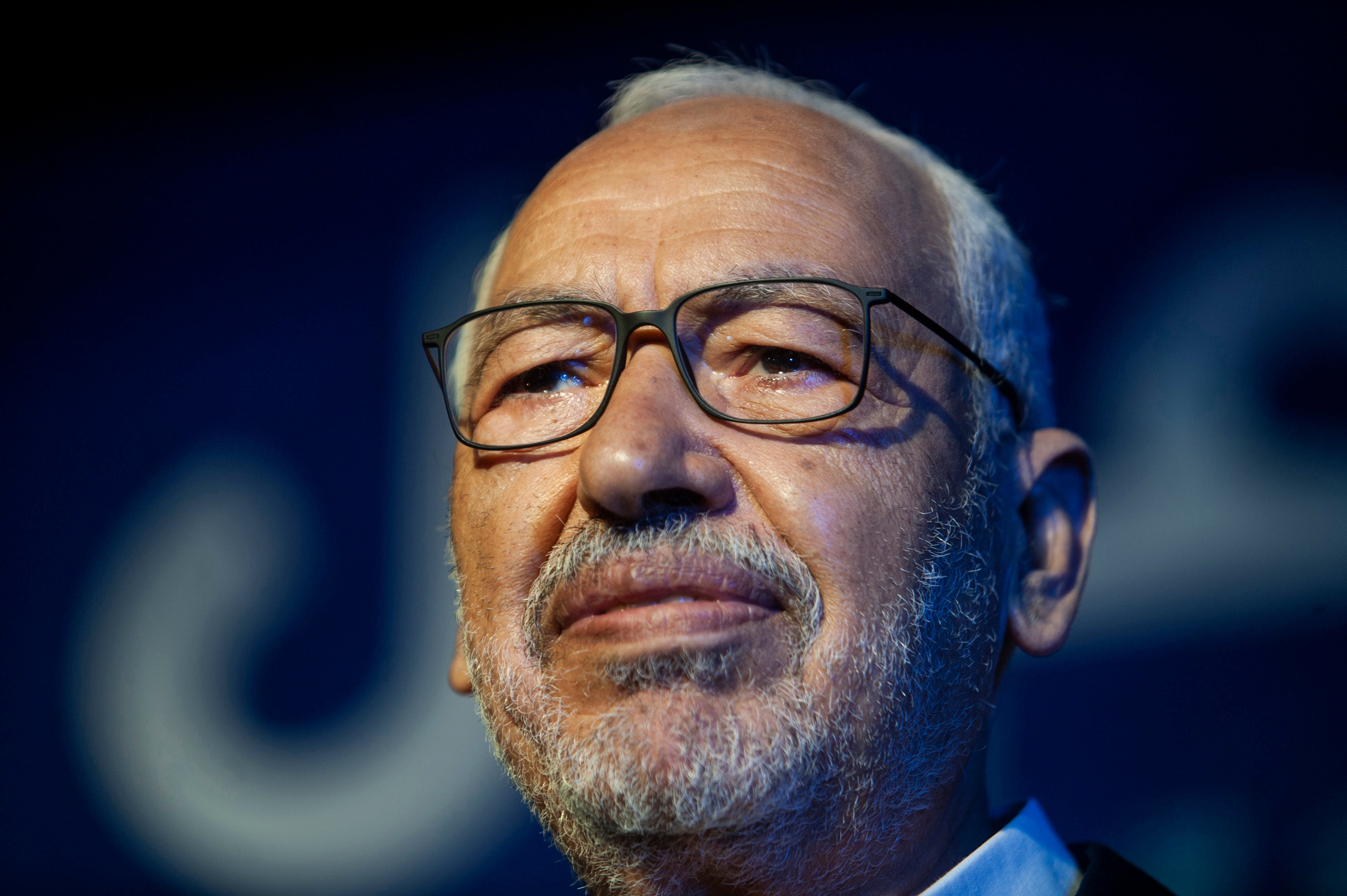Tunisia opens corruption probes of leading Islamist party
Tunisian local media say prosecutors have opened investigations into alleged foreign campaign funding and anonymous donations to Islamist movement Ennahdha and two other political parties

Your support helps us to tell the story
From reproductive rights to climate change to Big Tech, The Independent is on the ground when the story is developing. Whether it's investigating the financials of Elon Musk's pro-Trump PAC or producing our latest documentary, 'The A Word', which shines a light on the American women fighting for reproductive rights, we know how important it is to parse out the facts from the messaging.
At such a critical moment in US history, we need reporters on the ground. Your donation allows us to keep sending journalists to speak to both sides of the story.
The Independent is trusted by Americans across the entire political spectrum. And unlike many other quality news outlets, we choose not to lock Americans out of our reporting and analysis with paywalls. We believe quality journalism should be available to everyone, paid for by those who can afford it.
Your support makes all the difference.Tunisian prosecutors have opened investigations into alleged foreign campaign funding and anonymous donations to Islamist movement Ennahdha and two other political parties, according to local media.
Ennahdha is the dominant party in parliament, whose activities were suspended this week by President Kais Saied. Tunisia's leader also fired the prime minister and key Cabinet members, saying it was necessary to stabilize a country in economic and health crisis. But Ennahdha and other critics accused him of overstepping his power and threatening Tunisia’s young democracy.
The spokesperson for the financial prosecutor’s office, Mohsen Daly, said Wednesday on Mosaique FM radio that the investigations were opened in mid-July.
He also announced investigations were opened earlier this month into the country’s national anti-corruption agency — suspected itself of corruption — and into Tunisia's Truth and Dignity Commission created to confront abuses during Tunisia’s decades of autocratic rule.
Ennahdha's leader, who is the speaker of parliament, said Tuesday that his party is a perfect target to blame for Tunisia's crescendo of economic, health and other problems. Coronavirus infections are notably ravaging the country, aggravating public anger.
Rachid Ghannouchi told The Associated Press that his party is working to form a “national front” to counter Saied’s decision to suspend the legislature, to pressure the president “to demand the return to a democratic system.”
He conceded that Ennahdha, which has been accused of focusing on its internal concerns instead of managing the coronavirus, “needs to review itself, as do other parties.”
Tunisia, which ignited the Arab Spring a decade ago when protests led to the overthrow of its longtime autocratic leader, is often regarded as the only success story of those uprisings. But democracy didn’t bring prosperity.
Reactions in Tunis were mixed to Saied's decisions, with some hoping they bring stability and others worried he seized too much power.
Omar Oudherni, retired army brigadier and security expert, said the president's moves, coming after a day of nationwide protests, “put an end to the development of anger ... This decision calmed the situation and protected the state and citizens, and even the ruling political parties, from the people’s wrath.”
He played down concerns of a return to authoritarianism.
“The Tunisian people will not be silent on any tyrant,” and will resist if the president goes too far, he said. "Doing what is good will receive support, and if he wants dictatorship, the people will sweep it up as they swept others.”